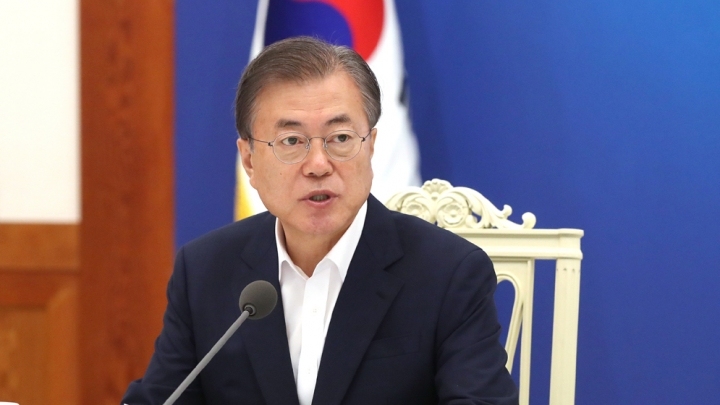S.Korea removes Japan from whitelist of trusted export partners
South Korea on Monday decided to remove Japan from its whitelist of trusted export partners after Tokyo's such removal earlier this month.
![People participate in a rally to denounce Japan's new trade restrictions on South Korea in front of the Japanese embassy in Seoul on August 10, 2019. [File photo: Yonhap via VCG]](https://p2crires.cri.cn/01dcri/images/zhycms_chinaplus/20190812/76195a94-2278-452f-8185-74d9e2f511f6.jpg?x-oss-process=image/resize,w_650)
People participate in a rally to denounce Japan's new trade restrictions on South Korea in front of the Japanese embassy in Seoul on August 10, 2019. [File photo: Yonhap via VCG]
South Korean Minister of Trade, Industry and Energy Sung Yun-mo told a press briefing that Seoul's export control of strategic materials will be run to meet the basic principle of the international export control system.
Sung said it will be hard to closely cooperate with a country, which violates the basic principle of the international export control system or continues to run the system inappropriately.
Under the revised act on the export and import of strategic materials, Japan was dropped off South Korea's whitelist of trusted export partners that are given preferential export procedure for strategic materials.
It came after Japan took South Korea off its whitelist earlier this month. Japan tightened regulations early last month on its export to South Korea of three materials crucial for manufacturing memory chips and displaying panels.
The Seoul's revised act was slated to take effect next month after the collection of public opinion and the legislation office's deliberation on it for about 20 days.
Sung noted that if the Japanese government calls for consultation during the deliberation period, the Seoul government would be ready to accept it at any time and any place.
Japan permitted the shipment of extreme ultraviolet (EUV) photoresist to South Korea last week, the first approval of a chip material export to South Korea since its tighter export control of such materials in early July.
However, South Korea still saw uncertainties despite Japan's approval.
Japan's export curbs came in protest against the South Korean top court's rulings that ordered some of Japanese companies, including the Nippon Steel and the Mitsubishi Heavy Industries among others, to compensate the South Korean victims who were forced into hard labor without pay during the colonization.
The Korean Peninsula was colonized by Imperial Japan from 1910 to 1945.

